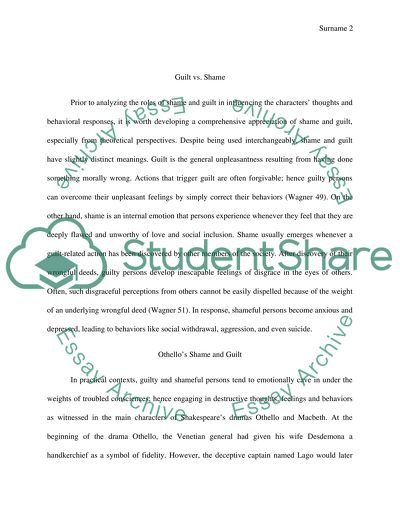Cite this document
(“The Role of Shame and Guilt in William Shakespeare's Othello and Essay”, n.d.)
Retrieved from https://studentshare.org/literature/1690290-the-role-of-shame-and-guilt-in-william-shakespeareaposs-othello-and-macbeth
Retrieved from https://studentshare.org/literature/1690290-the-role-of-shame-and-guilt-in-william-shakespeareaposs-othello-and-macbeth
(The Role of Shame and Guilt in William Shakespeare'S Othello and Essay)
https://studentshare.org/literature/1690290-the-role-of-shame-and-guilt-in-william-shakespeareaposs-othello-and-macbeth.
https://studentshare.org/literature/1690290-the-role-of-shame-and-guilt-in-william-shakespeareaposs-othello-and-macbeth.
“The Role of Shame and Guilt in William Shakespeare'S Othello and Essay”, n.d. https://studentshare.org/literature/1690290-the-role-of-shame-and-guilt-in-william-shakespeareaposs-othello-and-macbeth.


